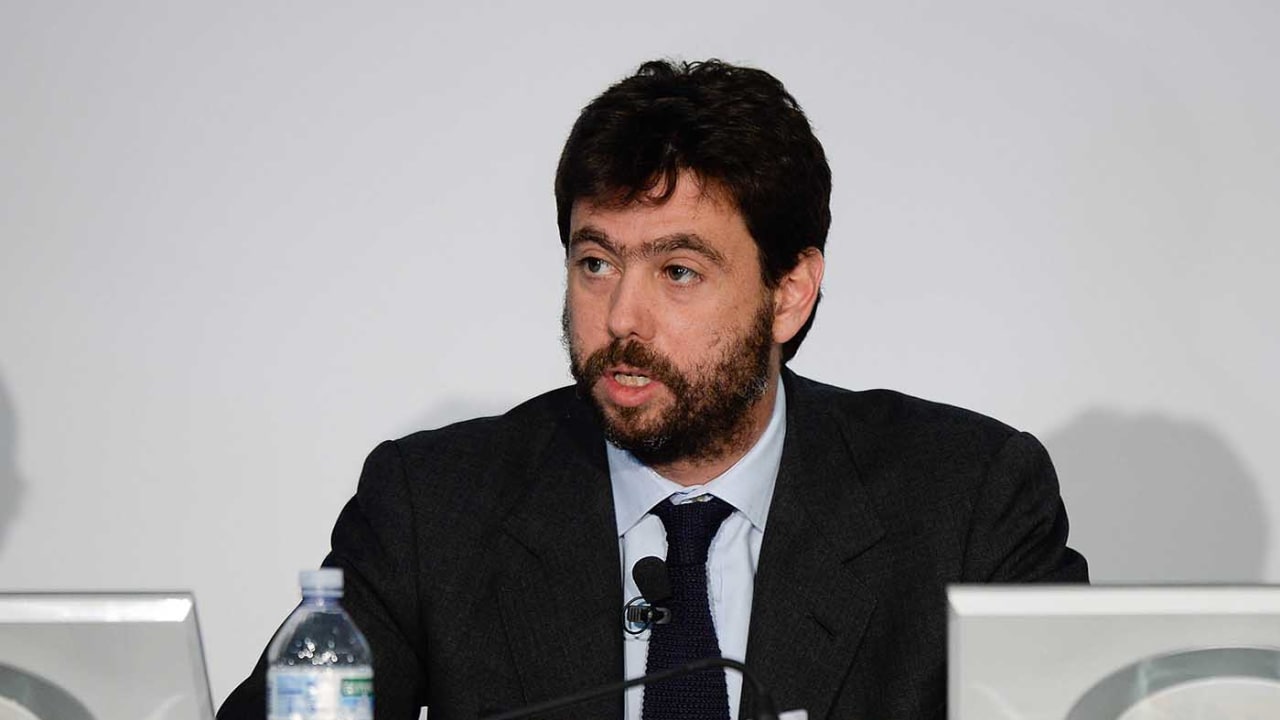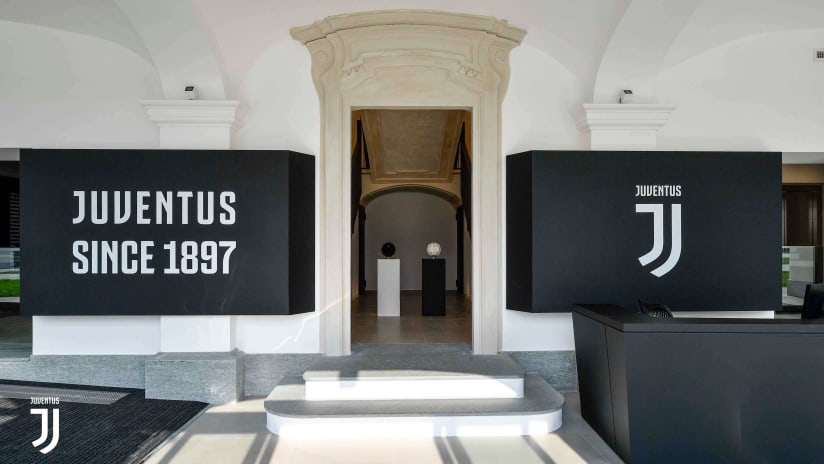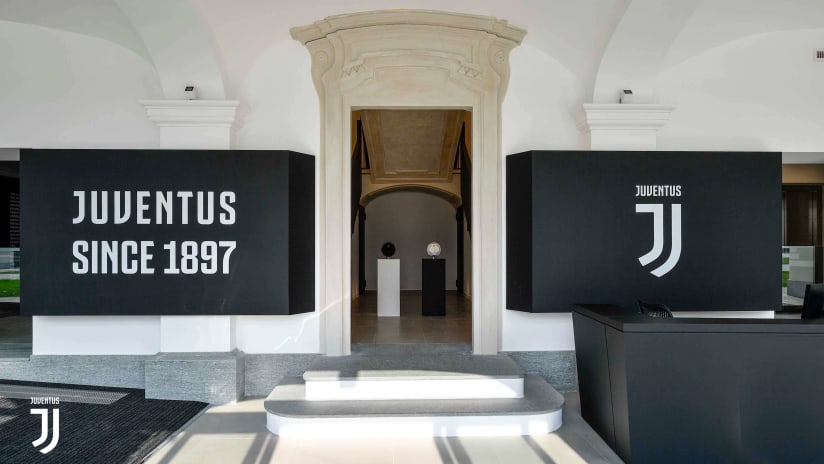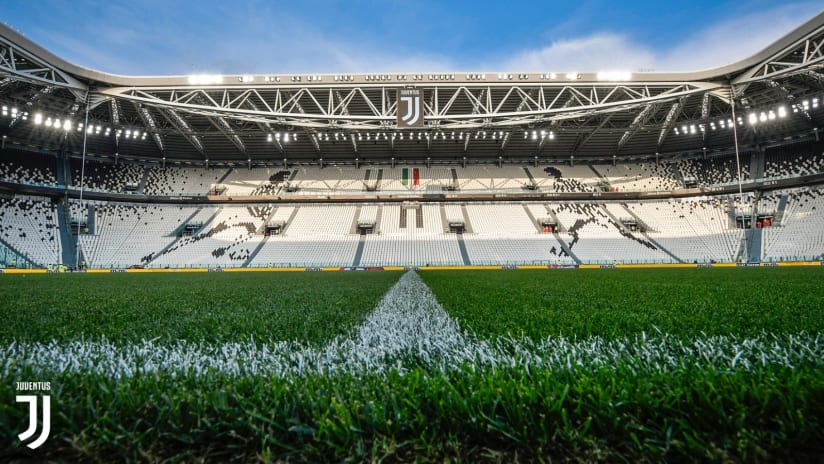24 October 2014
Juventus president Andrea Agnelli opened this year’s club shareholders’ assembly with the following speech:
Only once before have Juventus enjoyed a period of success comparable to the one we’re currently experiencing. In May this year, we won our third consecutive Scudetto, a feat we had not achieved since the 1930s. We at Juventus have managed to repeat that – 80 years down the line – thus laying down another milestone in the history of Italian football.
Not one player who wears the famed black and white jersey is in the mood to stop here: “the most important victory is the next one” is our mantra. The sporting aspect has a solid foundation and that’s primarily down to Massimiliano Allegri, a coach who’s already shown himself to be a winner. Together with Fabio Paratici, Pavel Nedved and a group of footballers more than capable of tackling the challenges that await us, Allegri is working to win our fourth consecutive Scudetto. It would be the stuff of legend.
Importantly, these sporting achievements have a very strong managerial basis, one that has been steadily built since 2010, when I had the honour to preside over this assembly for the first time. The structure and level of our income – the fruit of the day-to-day work of men and women who I want to thank individually – has brought Juventus’ total revenue for characteristic earnings up to €280.5 million. This is composed of match day proceeds along with television and commercial revenue. If we add this to gross income generated from “footballer management”, our overall turnover surpasses €300 million for the first time ever. The exact figure is €315.8 million. The fact that we’ve broken even pre-tax and returned to an operating profit for the first time in four years – one of the objectives we initially set ourselves – completes a turnaround that few believed would be possible.
All is well, then? No.
You need only take a step back and look at Italian football objectively to recognise that it’s in progressive decline. Some within the establishment have had the courage to declare that considering Italy’s decline across all sectors, the growth of our industry – though still inferior to other countries – should reassure us. That is not the case, because that growth is linked exclusively to the evolution of the TV broadcasting market.
Less than 20 years ago, England, Spain and Germany saw Italy as an example, yet now they’ve overtaken us every way: 1) in terms of income levels 2) business sustainability 3) sporting results 4) actual and relative stadium attendance levels 5) UEFA rankings. Today, we are even struggling to defend our fourth place from Portugal.
The level of revenue we present to you today once again confirms Juventus’ place amongst the top football clubs in the world, and indeed our UEFA ranking has improved. Yet our main competitors – Real Madrid, Bayern Munich, Manchester United and Barcelona – have left us far behind. No Italian team has been able to grow at their pace, a clear sign of the structural limitations which evidently undermine football in our country.
Karl Kraus once said that one of the most common diseases is diagnosis. That statement couldn’t be truer, but in Italy too many have believed that the disease simply did not exist. Merely ten years ago, Serie A match days generated the same income as the Bundesliga, slightly less than La Liga and around a third of the Premier League. If we were moving forward at a snail's pace then, we're going the wrong way altogether now. The Bundesliga and La Liga now generate double the income of Serie A, whilst stadium receipts in Italy have dipped below €200 million per annum (20 per cent of which is produced solely by Juventus Stadium). Juventus Stadium remains the only example of cutting-edge football infrastructure in Italy, despite it representing just one twentieth of the whole.
It’s not enough.
Football is the people’s sport, but fans and families have progressively abandoned Italian stadia. Some – occasionally surprisingly – have affixed the blame for this to the improvement of television coverage. I believe this to be too singular an explanation, not least because without television revenue Italian football would have been dead some time ago. Yet we will meet that same fate soon if we are not able to fight a battle on two fronts.
On the home front, we must ensure that fans fill our stadia once more. Thanks to Juventus Stadium, we have been able to achieve an average of 95% capacity (it’s big news when it’s NOT sold out). However, the rest of Serie A consistently records below 50% capacity and shows progressive decline.
And then there is the foreign question. We are facing the challenge of a market that by now has become truly global. Over the last ten years, Italian football has disappeared from television screens in the largest Western markets and has not been able to find alternatives. During the same period, Spain and England have knuckled down to constructing genuinely global brands that have had obvious consequences on the commercial income of the individual clubs. Just to give you an example: Liverpool’s main sponsor at the moment is Standard Chartered (bringing in 25 million a year), who operates outside of Europe. This is a financial company that is active exclusively in Asia, Africa and in the Middle East. This seems to me to be a very significant example illustrating the powerful impulse that the English Premier League brand has been able to generate for its clubs over the last decade. All of this comes after a long journey that began at the beginning of the 1990s.
Here at Juventus, we are trying to recover the lost ground. From 1 July 2015, our new agreement with Adidas and the renewed sponsorship deal with Jeep will considerably increase the value of our shirt, putting it back up alongside many of Europe's top clubs.
However, stepping out on the front foot and reaching new partnerships mustn't stop with just the jersey. Club tours and digital media can today open up new opportunities and new international markets that will allow us to increase revenue. Yet once again Juventus will only grow at a fraction of its potential, if the collective product of Serie A doesn't make steps forward as well.
In Italian football conservative forces currently appear to have the upper hand, protecting specific interests large and small, as well as personal profits. However, I am convinced that these same forces will not be able to silence those who stand for change.
Football's governing authorities showed all their limitations in the summer just gone. A well-established practice was changed/ignored and the complicated system for electing the president of the Italian Football Federation managed to disregard the views of all the technical staff, footballers, coaches, referees and a sizeable chunk of Serie A. This was a defeat for many and a victory for merely a few adept and unscrupulous people, who had planted the seeds of their support long ago when the rule of despots was able to prop up power. Yet, it was more a defeat for Italian football, which gave an impression of itself as outdated and lacking any reformist tendencies. Today, the results are staring us in the face. UEFA looks at us with caution, as do international observers. Even the Italian government has not been able to identify an appropriate counterpart to turn to when developing the decree on stadium security.
Football, the sport itself, must be brought back to the centre of our industry, outlawing any project with a short-term vision. Traditionally, Juventus has always been open to dialogue with everyone, but it will not endorse stopgap measures.
I'll repeat: football must be brought back to the centre of our attention. Reviewing the size of Serie A squads, which has been spoken about a lot recently, is sacrosanct. Yet, it must be supported by an immigration policy that is able to manage the situation in a world constantly on the move, as well as by the institution of “B” teams. These are preferable to the ownership of multiple clubs, which will only fuel false valuations of players and small, provincial power bases. Our competitor clubs in Europe have youth players on the UEFA List B with more first-team appearances than their Italian peers. This is nothing to do with courage; it is to do with careful managing and forward planning. These are qualities that the system of “B” teams can guarantee, thanks to the passage of young players from the reserve teams to the first-team midway through the season.
The increase in television revenue over the three-year cycle from 2015-2018 (20 per cent more compared to 2012-2015) is a fact that must give stability to the league now, firstly by giving more guarantees for clubs that are relegated into Serie B. Currently this eventuality lumps economic disaster onto sporting disillusion, which has a further effect of progressively reducing the number of teams in Lega Pro. This move will give practicality and efficiency to a system that has operated beyond its means for far too long.
In a book released many years ago by Simon Kuper, entitled “Football Against the Enemy”, the author wrote: “When the English football fan dies, he goes to Italy, where he finds the best players in the world, matches shown in full on public TV and a great number of sporting newspapers. He even finds good weather!” This was Serie A for the English twenty years ago. I am not saying it for nostalgia's sake.
I state it with the ambition that Italy can return to being THE benchmark once again.




